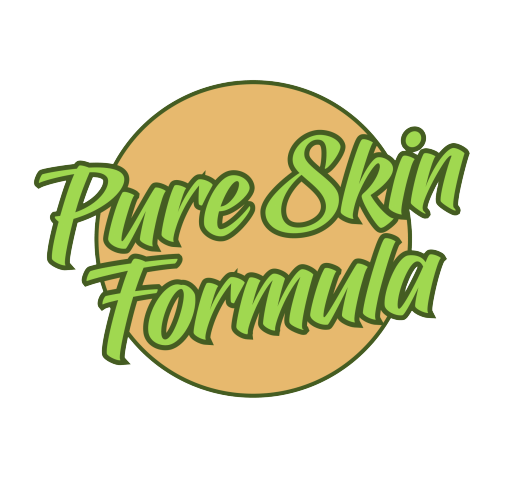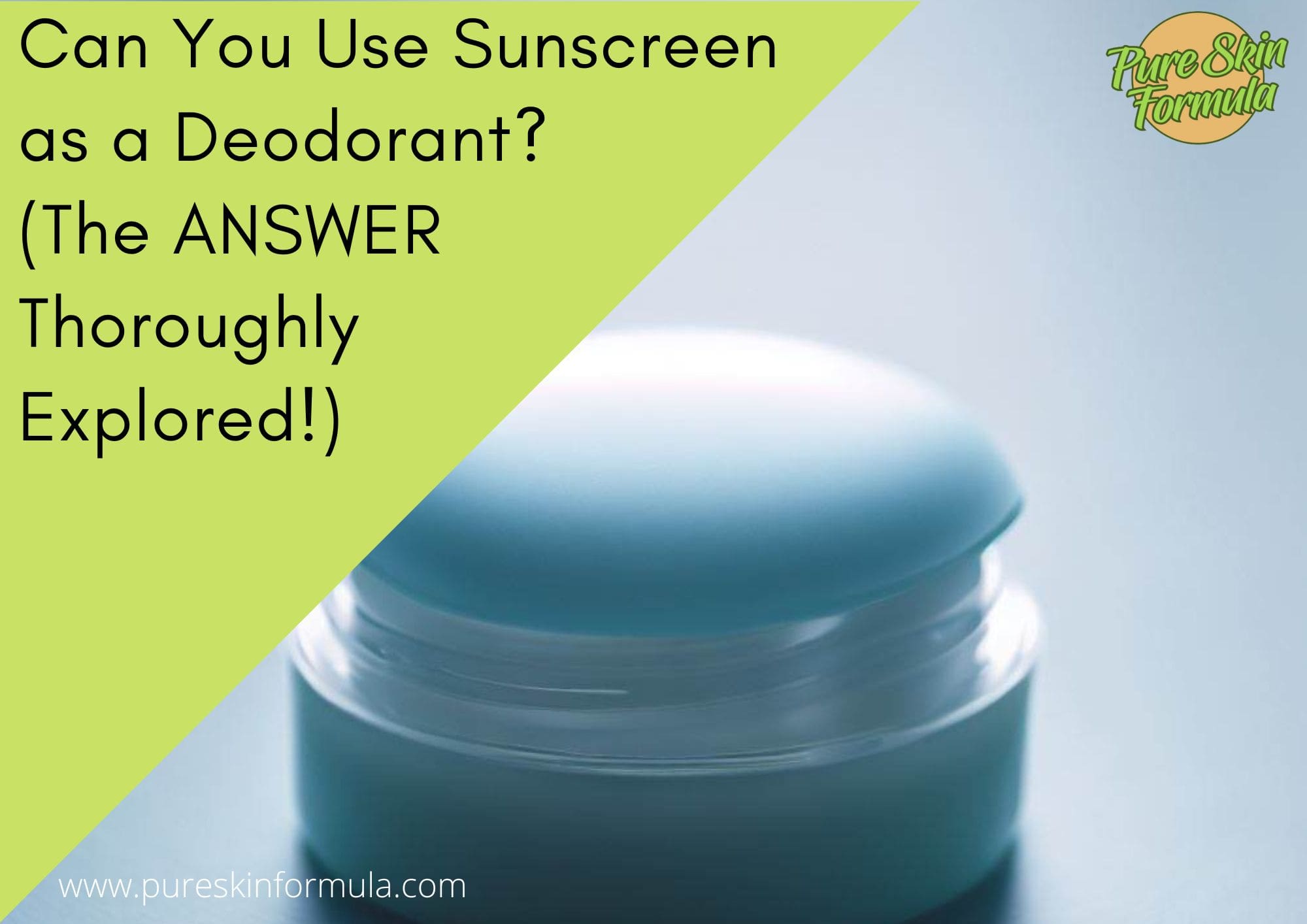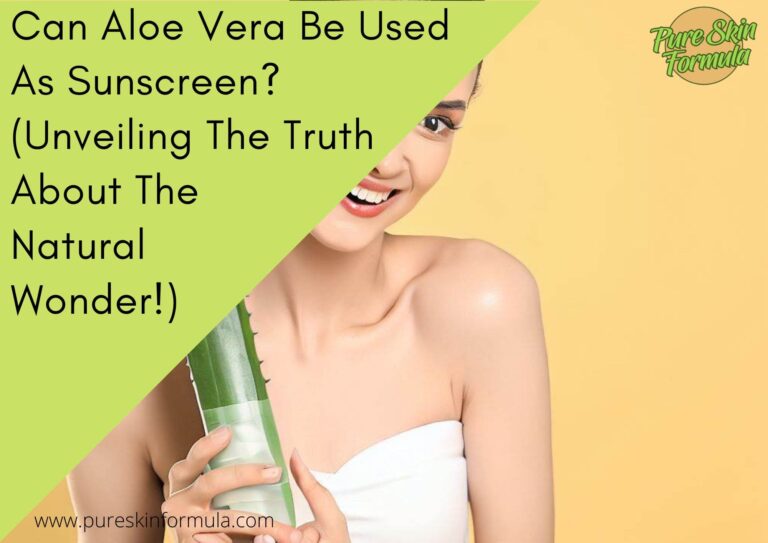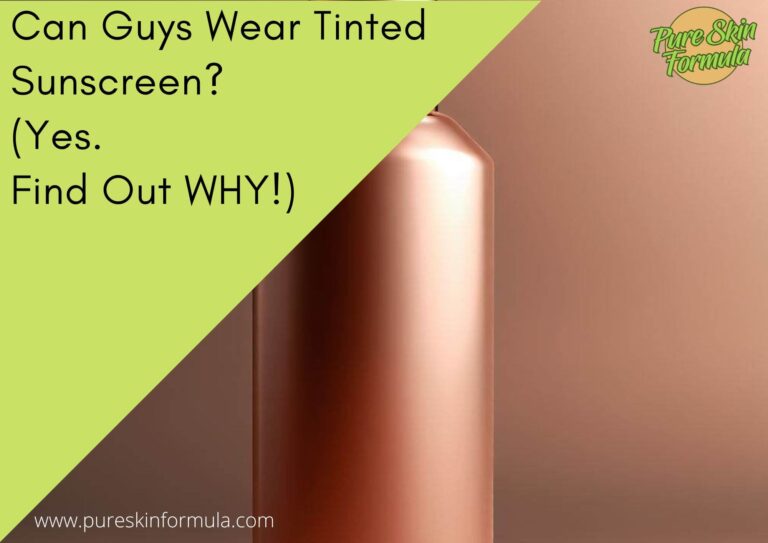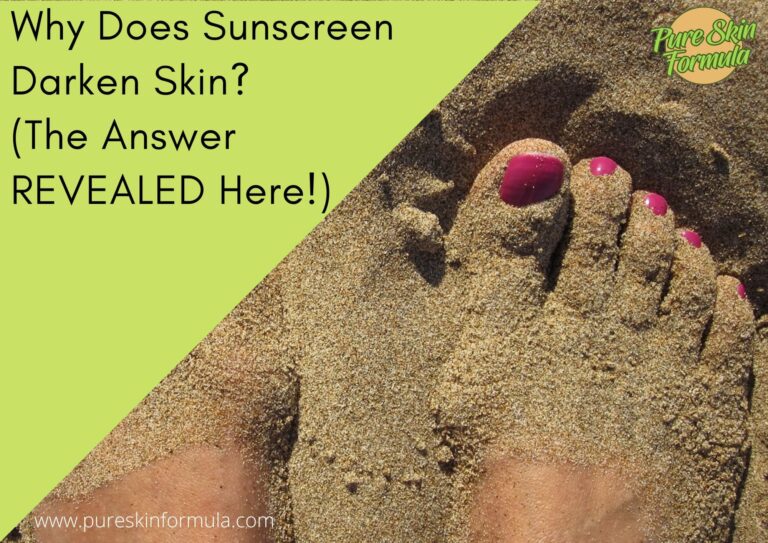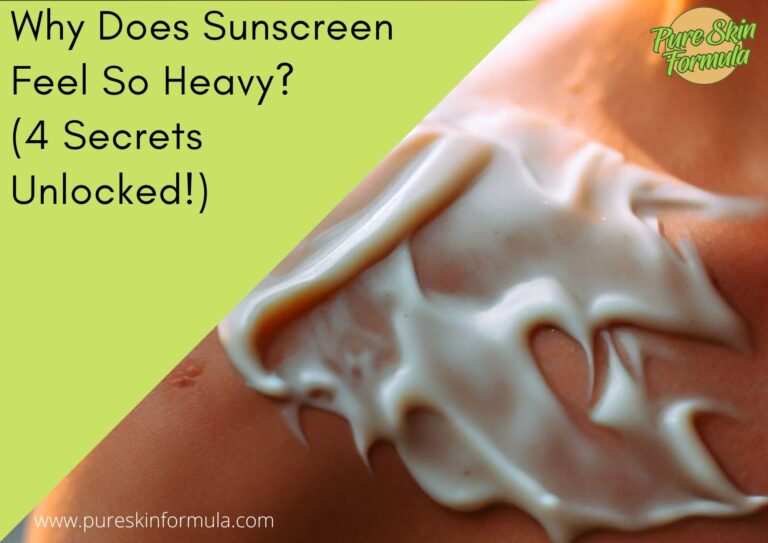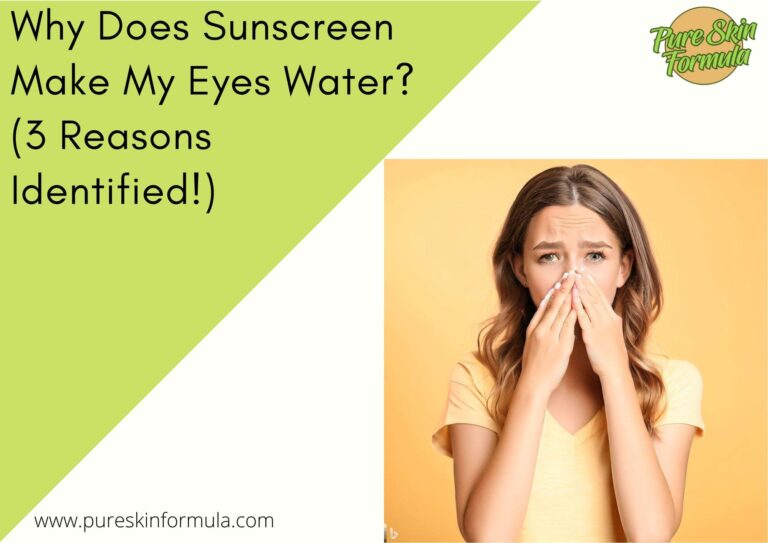Imagine the convenience of combining sunscreen’s sun-protecting powers with deodorant’s odor-fighting capabilities. One may think – no more carrying multiple products or worrying about conflicting scents!
If it were possible to use sunscreen as a deodorant, it would be a game-changer for those seeking a simplified skincare routine without compromising effectiveness.
If you’re eager to uncover the truth and determine whether you can streamline your skincare routine, join me in this exploration.
I will delve into the scientific composition of sunscreen and deodorant, discuss the potential risks and benefits, and offer practical tips for finding the best sun protection and odor control solutions. Let’s embark on this fascinating journey together.
Can you use sunscreen as a deodorant?
No, sunscreen should not be used as a deodorant. These products serve different purposes and have distinct formulations. Sunscreen protects the skin from harmful UV rays and reduces the risk of sunburn and skin damage.
Deodorant is formulated to control body odor by inhibiting bacterial growth and masking unpleasant smells.
While some sunscreens may contain ingredients with antibacterial properties, they are not formulated or tested for odor control. Additionally, using sunscreen as a deodorant may lead to skin irritations or allergic reactions due to its composition and intended use.
It is essential to use products for their intended purposes to ensure effectiveness and safety. Use a good deodorant or antiperspirant product to control body odor effectively. Maintaining hygiene practices, such as bathing regularly and wearing clean clothes, is crucial to effectively managing body odor.
Let’s go further and explore the topic deeper.
The science behind deodorants
Have you ever wondered how deodorants work magic in keeping body odor at bay? Well, it’s all about tackling the root cause – bacteria. When we sweat, bacteria on our skin break down the sweat molecules, resulting in a not-so-pleasant odor.
Deodorants step in to save the day by controlling bacterial growth. They contain antimicrobial agents that inhibit the growth of odor-causing bacteria. By reducing bacterial activity, deodorants help keep those unpleasant smells under control, leaving you feeling fresh and confident.
The active ingredients in deodorants play a crucial role in combating body odor. Some include triclosan, alcohol, and various botanical extracts. Triclosan (controversially accepted by some consumers), for instance, has antimicrobial properties that hinder the growth of bacteria.
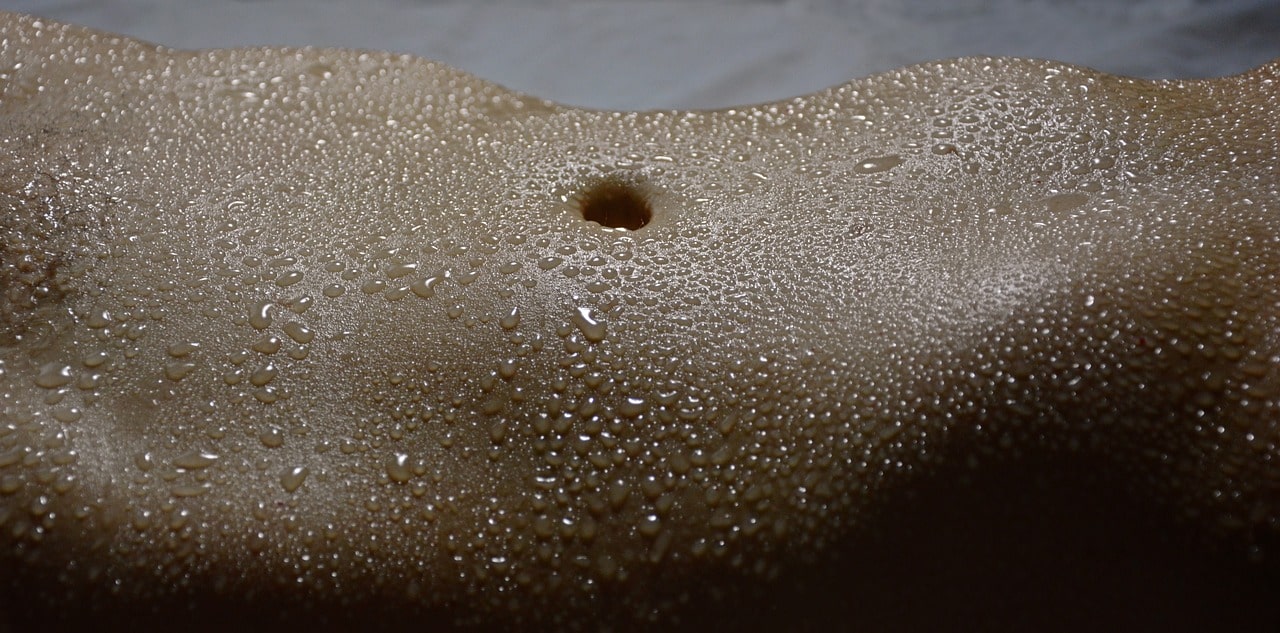
Alcohol, on the other hand, creates an unfavorable environment for bacterial survival, further reducing their numbers. Additionally, botanical extracts like tea tree oil or witch hazel have natural antimicrobial properties, making them effective alternatives in natural deodorants.
Apart from combating bacteria, deodorants often contain fragrances or essential oils to mask lingering odors. These delightful scents help leave you feeling fresh and smell great throughout the day.
What about antiperspirants?
While deodorants primarily focus on odor control, antiperspirants take it further by addressing sweat production. Antiperspirants contain aluminum-based compounds that temporarily block the sweat ducts, reducing the amount of sweat reaching the skin’s surface.
Deodorants and antiperspirants are often combined into a single product, providing both odor control and sweat reduction benefits. However, if you prefer to use different products or have specific needs, it’s essential to read the labels and choose accordingly.
So, the next time you reach for your deodorant, remember that it’s not just about smelling good—it’s about keeping those pesky bacteria in check and feeling confident throughout the day!
How does the sunscreen function?
Well, sunscreen contains a combination of active ingredients that can be categorized into two main types: physical blockers and chemical filters. Physical blockers like zinc oxide and titanium dioxide work by reflecting and scattering UV rays away from the skin’s surface.
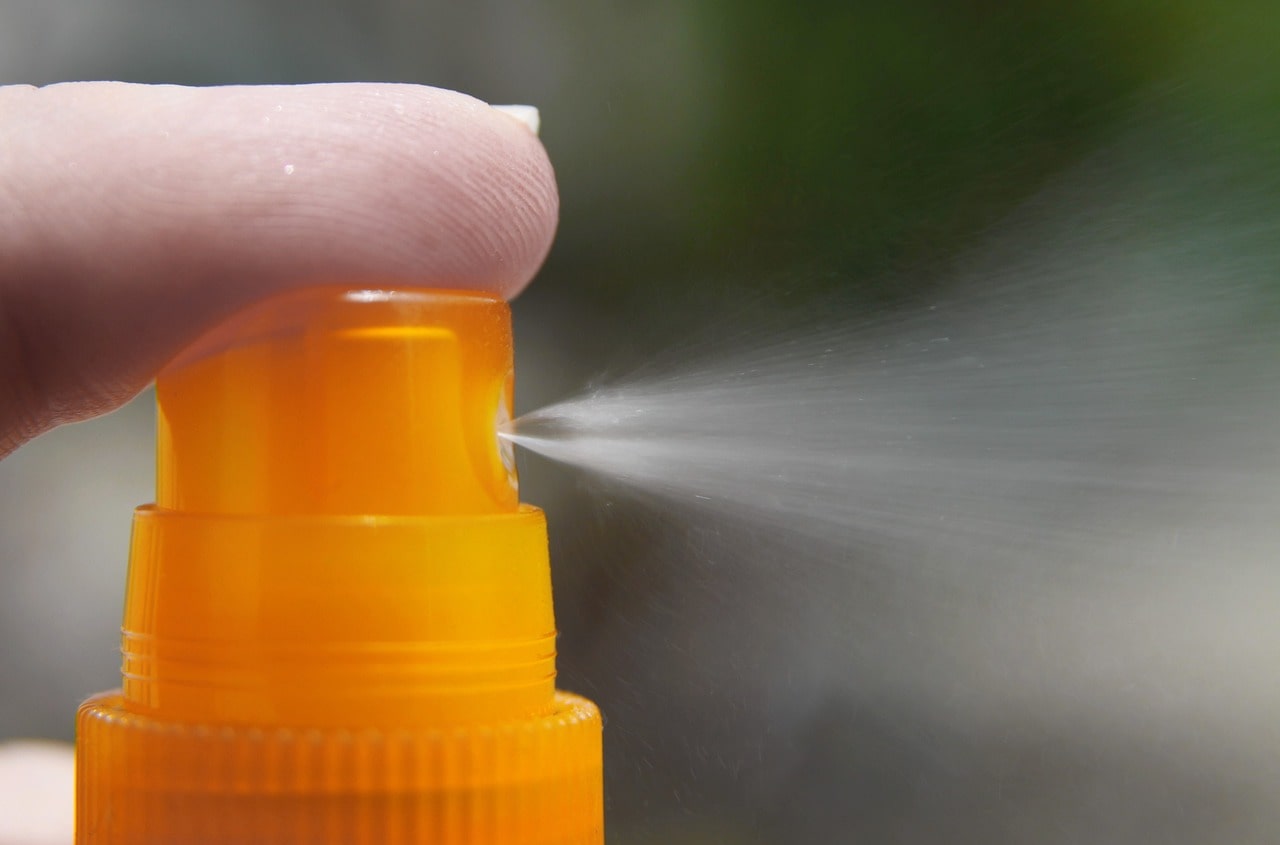
Think of them as tiny mirrors bouncing those pesky rays away.
On the other hand, chemical filters, such as avobenzone or octinoxate, work by absorbing UV radiation and converting it into less harmful energy. They act as a sponge, soaking up those damaging rays and reducing their impact on the skin.
These active ingredients and other components, like moisturizers or emollients, create a barrier that helps safeguard your skin from the sun’s harmful effects.
Choosing a broad-spectrum sunscreen that protects against UVA and UVB rays is a good practice. UVA rays penetrate deep into the skin and contribute to premature aging, while UVB rays primarily cause sunburn.
How to use sunscreen properly?
Apply it generously and evenly to all exposed areas of the skin. Remember those easily overlooked spots like the ears, back of the neck, and tops of your feet! Remember to reapply every two hours or more frequently if you’re swimming or sweating profusely.
Another critical aspect is timing. Apply sunscreen at least 15 to 20 minutes before sun exposure to allow the product to absorb into the skin thoroughly. Sunscreen is not just for sunny days! UV rays can still harm your skin on cloudy or overcast days, so make it a habit to wear sunscreen every day, regardless of the weather.
How could sunscreen and deodorant overlap?
Believe it or not, there can be some ingredient overlap between certain sunscreens and deodorants. Some common elements, such as antimicrobial agents or fragrances, are used in both products.
However, it’s important to note that just because they share ingredients doesn’t mean they serve the same purpose or have the same effectiveness.
Some people have reported that certain sunscreens, particularly those containing zinc oxide, have helped mask body odor to some extent. But it’s far from an established solution. The efficacy of using sunscreen as a deodorant varies from person to person and may not provide long-lasting or reliable odor control.
Relying solely on sunscreen for odor control may lead to disappointment and ineffective results.
Are there possible risks and drawbacks?
Using sunscreen as a deodorant can have potential risks and drawbacks, including the risk of skin irritations or allergic reactions. Sunscreen might not be suitable for application on the underarm area.
The skin in the underarm region is more sensitive and prone to irritation, especially when exposed to unfamiliar ingredients.
Some of us may have specific allergies or sensitivities to certain sunscreen components, increasing the risk of adverse reactions. It’s always important to prioritize the health of your skin and avoid using products in sensitive areas for which they are not intended.
How to alternatively control body odor?
One practical approach is to wear breathable clothing made from natural fibers like cotton or linen. These fabrics allow better airflow, reducing sweat accumulation and minimizing the conditions for bacterial growth.

Also, good hygiene habits, such as regularly showering, using antibacterial soaps, and thoroughly drying the underarm area, can help. Adding a light dusting of baking soda or cornstarch to the underarms before applying sunscreen can also help absorb moisture and minimize odor.
Look for deodorants that are long-lasting and offer odor control throughout the day. Consider products with antibacterial ingredients or natural alternatives like tea tree oil or witch hazel. Many aluminum-free deodorants are available if you prefer a natural approach.
These options can provide effective odor control without compromising your skin’s health. Remember to apply the deodorant after the sunscreen has been absorbed into the skin to ensure maximum effectiveness.
Final thoughts
While using sunscreen as a deodorant may seem tempting for its convenience, the reality is that these two products serve distinct purposes. Sunscreen protects our skin from harmful UV rays, while deodorant is designed to combat body odor.
Although overlapping ingredients may exist, relying solely on sunscreen for odor control is not recommended. It’s crucial to prioritize your skin’s health and use products as intended.
You can effectively address sun protection and body odor by incorporating suitable deodorant options alongside sunscreen, practicing good personal hygiene, and choosing breathable fabrics, ensuring a confident and healthy skincare routine.
Thank you for reading!
Valeria
